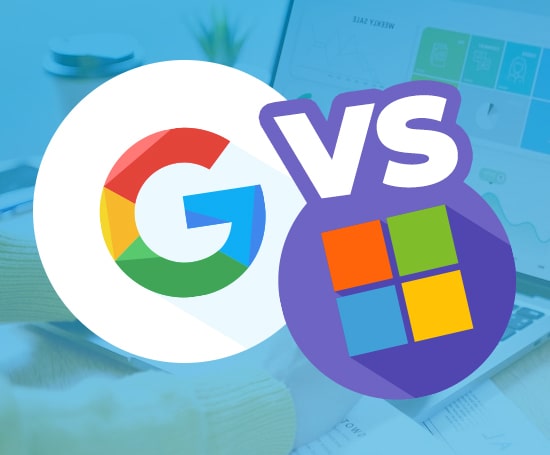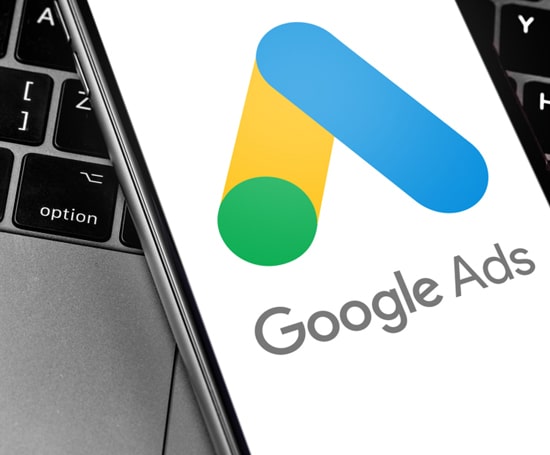Latest From The Sayu Blog




Search engine optimisation (SEO) and pay-per-click (PPC)
advertising are two of the most popular and effective digital marketing strategies used to help
businesses grow.
While each approach has its own advantages and disadvantages, understanding
the differences between the two can help businesses determine which one is best for their needs. Both
can have a major impact on businesses, so it’s essential to understand what sets them apart in order to
get the most out of your online presence.
This article will define what PPC and SEO are,
explain how each can be utilised to help businesses, discuss the differences between PPC & SEO, and
explore how SEO & PPC can work in tandem to deliver excellent results.

Pay-per-click (PPC) advertising, also known
as cost-per-click (CPC), is an online advertising model which allows you to bid on certain
keywords related to your business and pay each time someone clicks on your ad.
This
type of advertising typically shows up on search engine results pages (SERPs) or other websites.
It can be highly targeted, allowing you to target specific locations, demographics, or
interests.
It works by placing ads on search engines or other websites where visitors
may be looking for information related to a particular product or service. When a user clicks on
an ad, they are taken directly to the advertiser’s website or landing page. The advertiser pays
only when someone clicks on their advertisement, hence the name “pay per click”. The amount
charged varies depending upon factors such as keyword competition, relevancy of ad copy, and
target audience.

The primary benefit of using PPC advertising is that it offers an immediate return on
investment (ROI). It provides instantaneous visibility for your business, as ads can be published
quickly and start to generate leads almost immediately depending on how competitive the keyword is. It
can also be easily tweaked or optimised if needed. Budget adjustments, keyword additions, or deletions
can be made quickly and easily.
Because businesses only have to pay when someone clicks
through to their site from an ad, there is no risk involved in running a campaign – if no one clicks
through to the site then there's no money lost. Additionally, because advertisers can target
specific audiences with customised messaging, they are more likely to reach people interested in what
they offer – making it easier to convert leads into customers.


Search engine optimisation
(SEO) refers to strategies used by businesses in order to improve their ranking in
search engines like Google and Bing. The goal of SEO is to increase organic traffic from search
engines through tactics such as link building, content creation, and keyword
research.
Unlike PPC campaigns which are paid for each time someone clicks on an ad,
SEO works more slowly but generates more sustainable long-term results over time.
SEO
helps improve visibility in organic search results by optimising content so it appears higher up
on results pages when people search for relevant keywords or phrases. This involves optimising
webpages; creating quality content using those keywords; building backlinks from high-authority
websites; improving page speed; ensuring mobile compatibility; optimising meta tags and titles;
as well as many other tactics that help increase rankings across different search engines.
Similar to PPC campaigns, SEO also has its own set of benefits which
make it an attractive option for businesses looking for website visibility but without having a
budget to spend on paid advertisements each month. One of the main benefits is that it offers
greater visibility than traditional forms of advertising due to its ability to reach more people
while increasing brand awareness at the same time.
Organic traffic from search
engines tends to convert better than paid traffic from ads due to the trustworthiness associated
with organic results versus sponsored ones. This means that any leads generated from organic
searches will likely lead to sales further down the line with minimal cost involved compared
with PPC campaigns requiring continual budgeting for them to stay active after being
launched.

The primary benefit of SEO lies in the cumulative effect of its ability to generate
increasing amounts of traffic over time – making it one of the most cost-effective long-term digital
marketing strategies available today.
Furthermore, since much of SEO relies on creating
quality content that users find useful or interesting enough to share with others, it can lead to
increased brand awareness over time. This can result in more conversions down the line as well as
improved customer loyalty due to the trustworthiness associated with being seen as an authoritative
source within a particular industry or niche.

When comparing the two types of campaigns side by side there are several key
differences between PPC and SEO that should be taken into consideration when deciding which one best
fits your needs:
.png)
Generally speaking, PPC campaigns tend to cost more than organic ones due to
their highly targeted nature versus a broader targeted approach with SEO. However, depending on
how competitive a certain keyword might be, prices can vary greatly between both options so
doing some research beforehand could save you money in either case.

With PPC, advertisers can target users based
on geographical location or interests, while SEO tends to focus more broadly across entire
regions. This means that if local targeting is needed then opting for a PPC campaign may well be
more beneficial, though local SEO strategies can also be extremely effective.

As mentioned previously, PPC campaigns tend
to provide quick visibility right away while SEO takes much longer to build up traction over
time, building trust and authority within search engines. However, both approaches are still
able to provide high-quality leads when done correctly.

The strengths inherent in both strategies mean that PPC and SEO can
complement each other rather well when used together to create a more effective digital
marketing strategy.
For example, businesses could use PPC data to inform their
organic keyword optimisation efforts by targeting keywords that are already performing well for
them via paid ads.
Likewise, businesses could use their organic rankings as an
indication of how well certain keywords are resonating with users and then adjust their PPC ad
copy accordingly. They could even target similar phrases that may have higher potential for
returns, given what’s already known about user behavior based on previous campaigns ran using
paid search engine advertising techniques.

Another approach would be to analyse data from successful PPC campaigns, such as
geographic locations, thereby informing strategic decisions regarding organic efforts such as targeting
niche markets or locations, instead of focusing broadly across regions.
Additionally, data
collected from successful organic efforts, like topics covered within content created or user engagement
levels, could inform decisions regarding bidding amounts within a particular market segment within a
given region; this way optimizing budgets allocated towards those types of initiatives.

While both Pay Per Click (PPC) and Search Engine Optimisation (SEO) have their own
advantages and disadvantages depending upon what type of strategy you’re trying to achieve,
understanding how they differ from each other will allow you to make informed decisions regarding
investments made towards either option and help you achieve your goals.
Combining these two
strategies together could potentially bring even greater success when executed properly, enabling your
business to reap even greater rewards through a more effective digital marketing
strategy.
Here at Sayu,
we offer expert PPC management and SEO services. Get in touch to discuss your needs and let us help you to take
your online presence to the next level.


